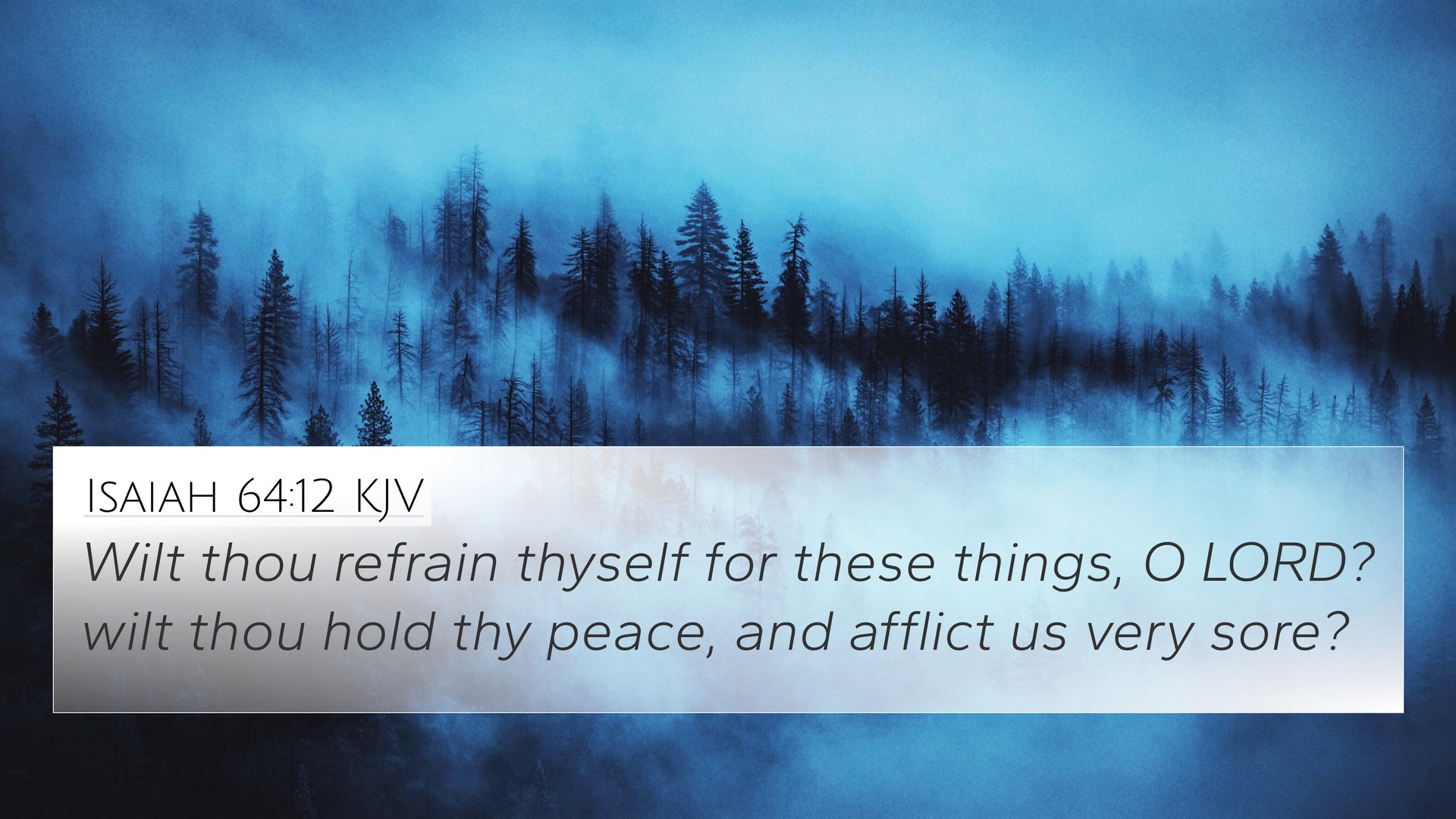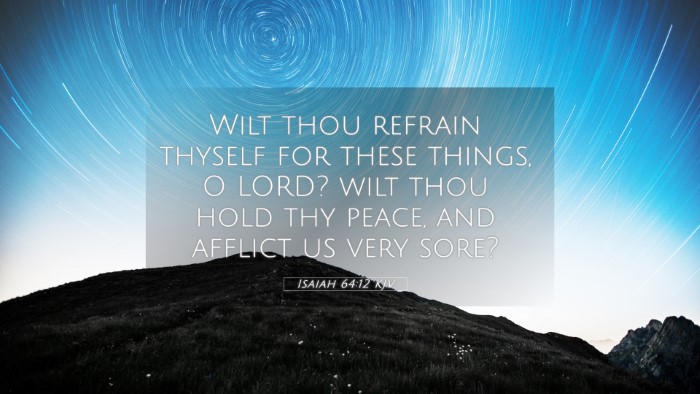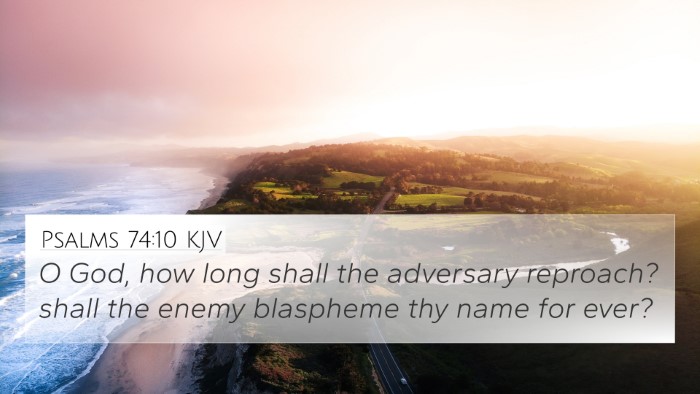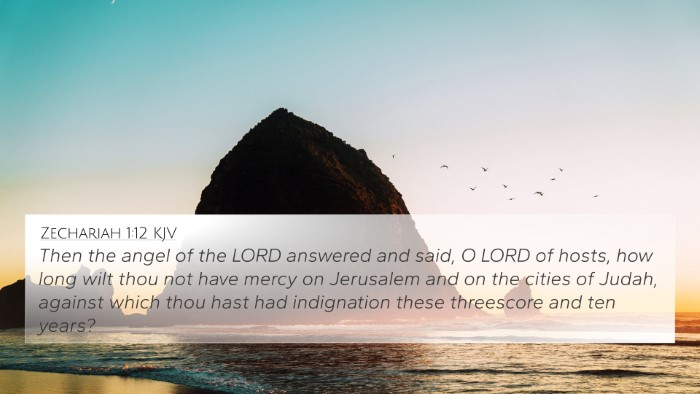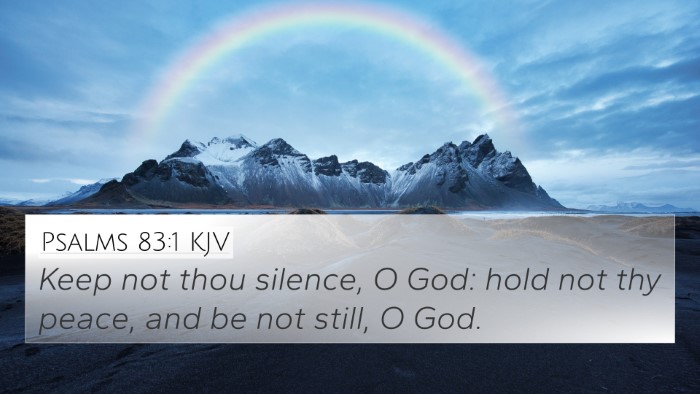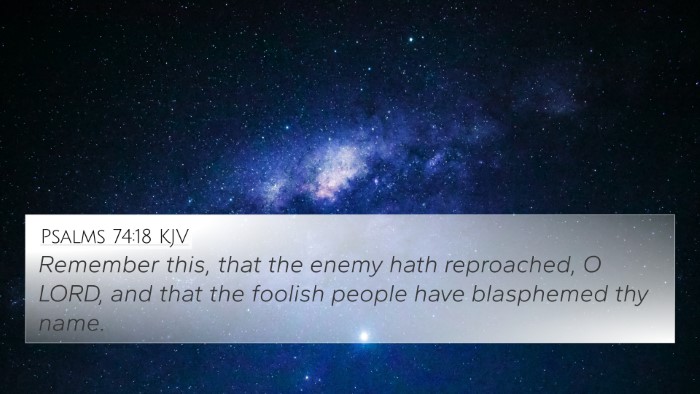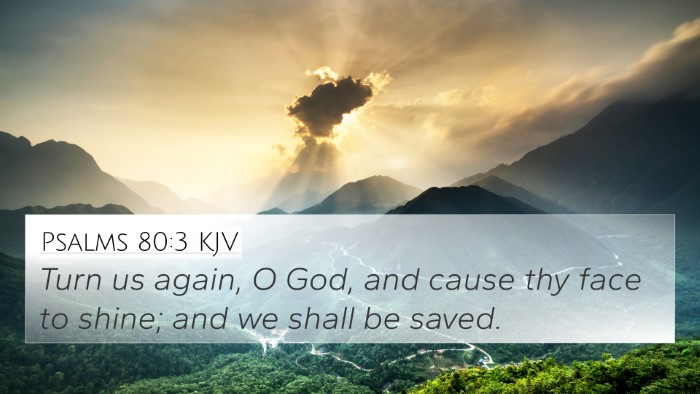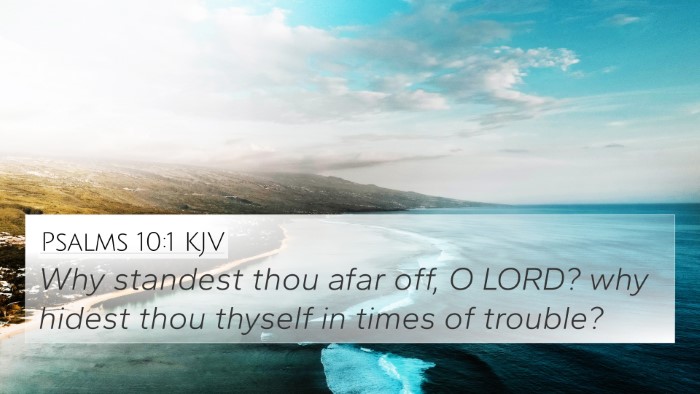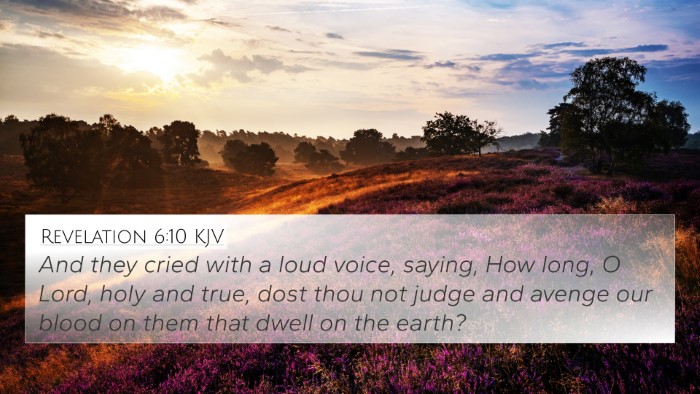Understanding Isaiah 64:12
Isaiah 64:12 states: "Will you restrain yourself at these things, O Lord? Will you keep silent and afflict us so very much?” This verse presents a poignant expression of the Israelites' desperation and plea for God's intervention amidst their suffering. The profound meaning embedded in this verse creates a rich tapestry of connections throughout scripture, elucidating God's character and the relationship between humanity and divinity.
Overview of the Verse
In Isaiah 64:12, the people are appealing to God to acknowledge their distress. They seek a response from Him, indicating that they feel abandoned in their suffering. This highlights their understanding of God as one who is capable of acting in their favor, but who seems to be silent during their trials.
Commentary Insights
Matthew Henry's Commentary
Henry emphasizes the human condition of despair and the cry for divine assistance. He notes that this verse encapsulates the Israelites’ feeling of spiritual neglect, reflecting on their sins that contribute to their plight. The heartfelt question posed serves to awaken a sense of urgency in God's response.
Albert Barnes' Commentary
Barnes points out the rhetorical nature of the questions in this verse. He argues that the questions serve to highlight the Israelites' longing for God’s presence and action. This builds a thematic connection suggesting that divine silence can often accompany human suffering, yet the hope for deliverance remains central.
Adam Clarke's Commentary
Clarke elaborates on the implications of God’s silence during times of trouble. He suggests that the prayer reflects a deep desire for restoration and intervention. Additionally, Clarke reflects on the importance of recognizing God’s sovereignty even when circumstances appear bleak.
Bible Cross-References
This verse is interconnected with several other biblical texts, fostering an enriching study through scriptural cross-referencing. Here are several key references that link thematically:
- Psalms 22:1 - A cry for help: "My God, my God, why have you forsaken me?"
- Lamentations 3:8 - A deep sense of hopelessness: "Even when I cry out or plead for help, he shuts out my prayer."
- Isaiah 1:15 - God's apparent distance: "When you spread out your hands in prayer, I hide my eyes from you; even when you offer many prayers, I am not listening."
- Romans 8:32 - Assurance of God's provision: "He who did not spare his own Son, but gave him up for us all."
- Hebrews 4:13 - God's omnipresence: "Nothing in all creation is hidden from God’s sight; everything is uncovered and laid bare before the eyes of him."
- Matthew 27:46 - Jesus’ plea on the cross, drawing a parallel to human abandonment.
- 2 Corinthians 1:10 - The assurance in deliverance: "He has delivered us from such a deadly peril, and he will deliver us again."
- Job 30:20 - Job's cry reflecting the desperate situation: "I cry out to you, God, but you do not answer."
- Psalm 13:1 - A lament asking how long God will hide his face: "How long, O Lord? Will you forget me forever?"
- Isaiah 63:17 - A reflection on divine abandonment: "O Lord, why do you make us stray from your ways?"
Thematic Connections
The plea presented in Isaiah 64:12 resonates with numerous themes in the Bible, particularly regarding God's silence, human suffering, and the quest for divine help. These themes are essential for understanding cross-referencing biblical texts.
Scriptural Analysis
Through a comparative Bible verse analysis, one may explore how the texts relate to one another, revealing patterns of despair, cries for help, and eventual deliverance. By identifying connections between the Old and New Testament, one can gain insight into God's consistent presence amidst human struggles.
Tools for Bible Cross-Referencing
For those interested in deepening their understanding of these connections, there are various tools and resources available:
- Bible Concordance - A tool that provides a list of scriptures related to specific keywords, facilitating deeper study.
- Bible Cross-Reference Guide - Helps link various verses together for thematic or contextual analysis.
- Cross-Reference Bible Study - Encourages exploration of related scriptures to gain holistic insights.
- Bible Reference Resources - Compilation of study aids and indices that support comprehensive understanding.
Conclusion
Isaiah 64:12 is a compelling verse that opens up a dialogue about human suffering and divine silence. By utilizing the cross-references and insights from reputable commentaries, readers can better contextualize their struggles within a scriptural framework. Ultimately, this verse invites believers to wrestle with their deepest pains while holding onto the hope that God hears and cares.
